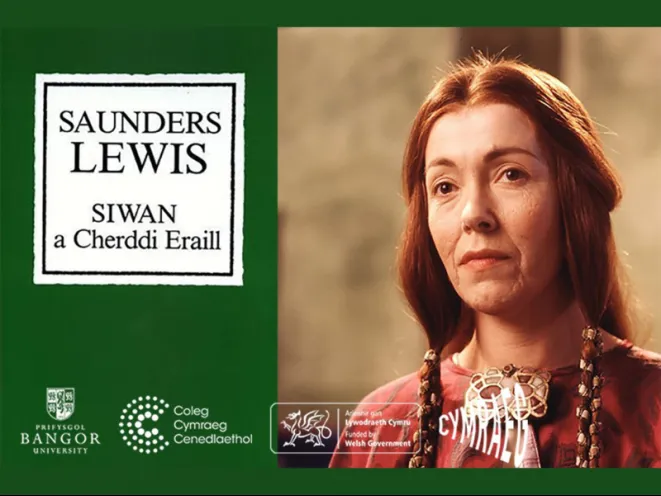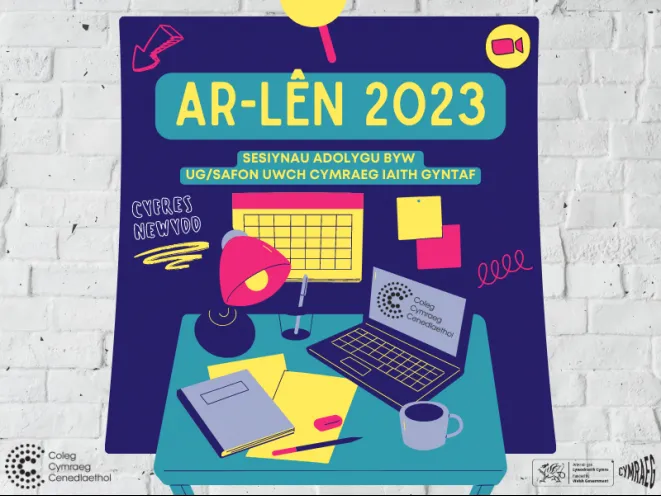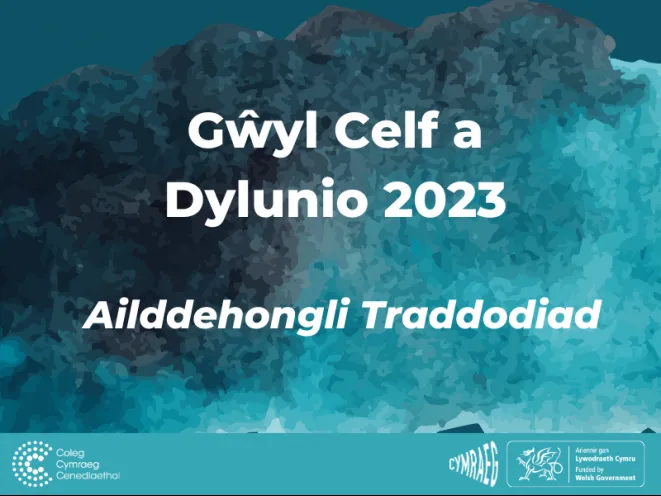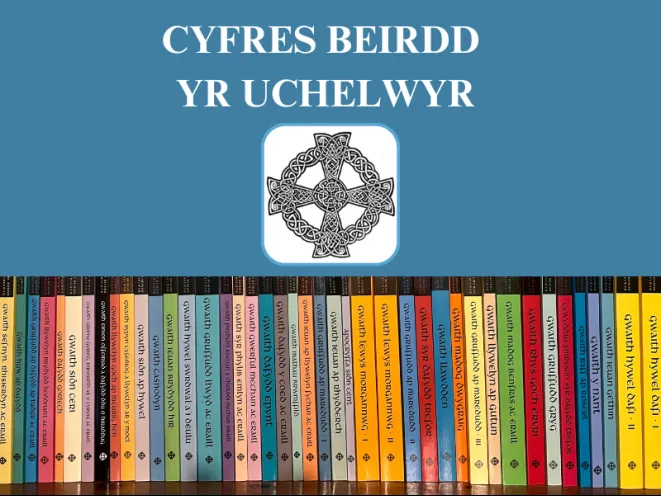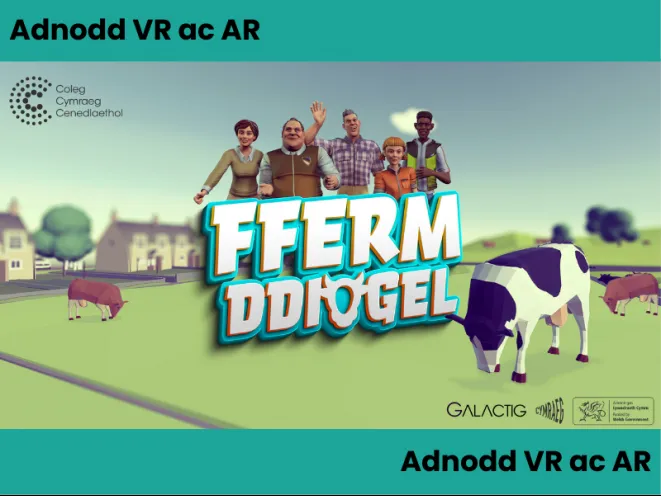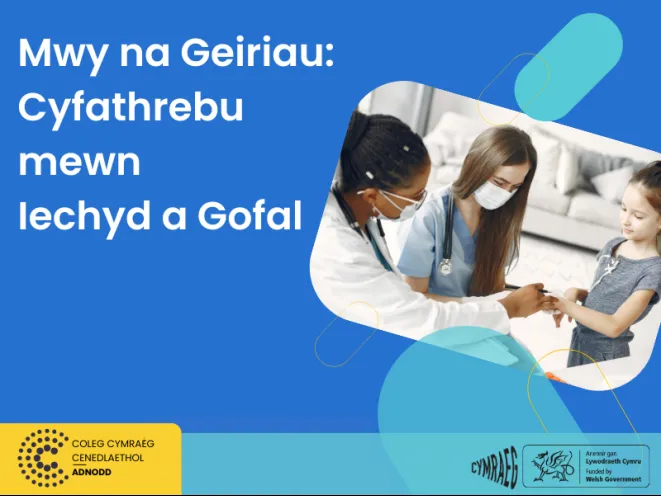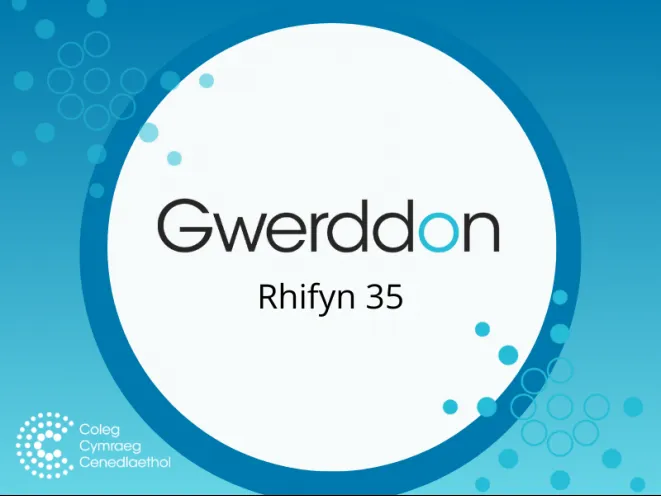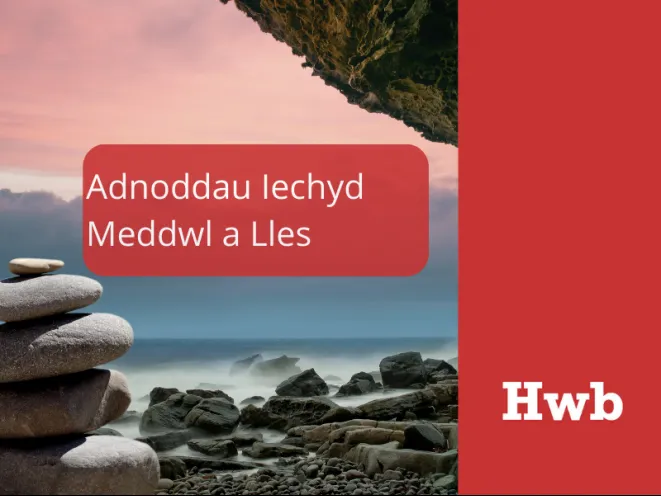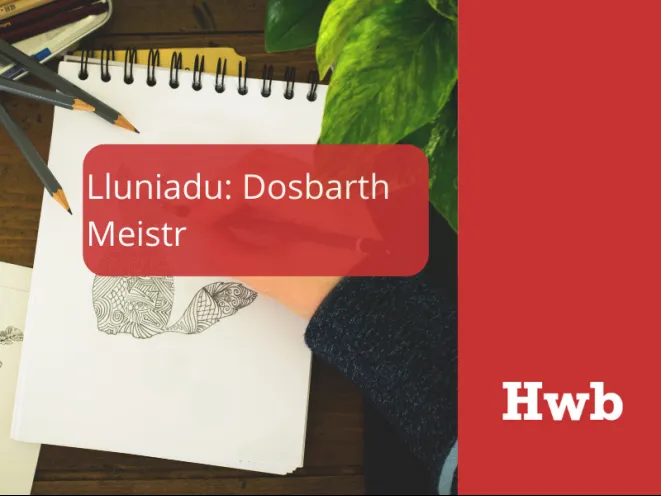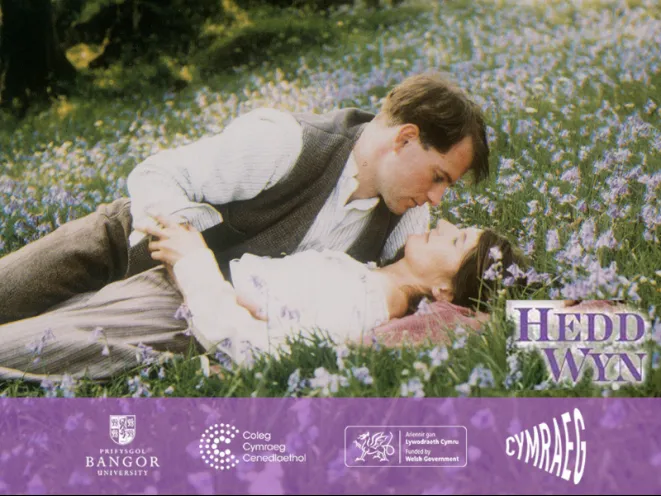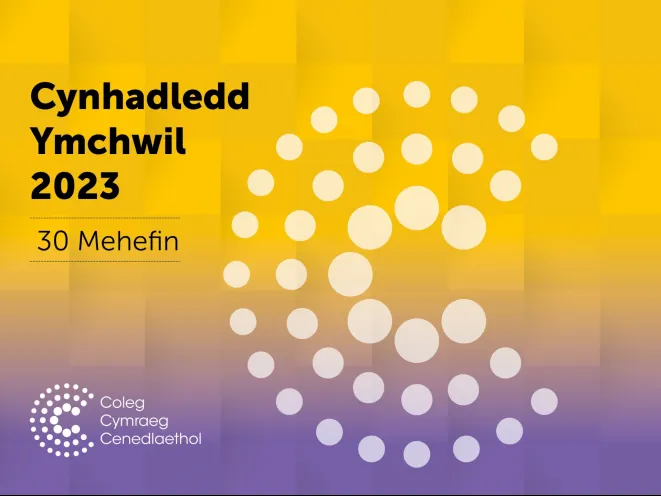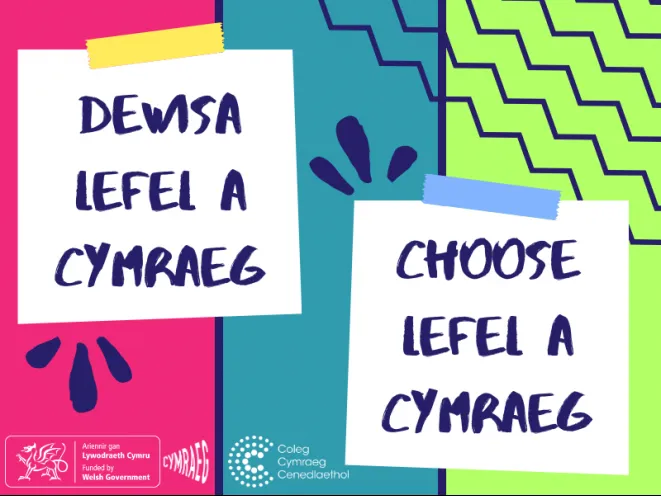An opportunity to hear a panel of experts and familiar faces in the world of Welsh drama discussing the play Siwan by Saunders Lewis. The panel includes Dr Manon Wyn Williams, Bangor University, Dr Llio Mai, and actors Ffion Dafis and Dyfan Roberts. Specifically suitable for year 12 pupils who are studying Siwan for the AS Welsh (Unit 1) oral exam, but of wider interest as well. A session recorded in Pontio, Bangor, during March 2023, in collaboration between Bangor University's Department of Welsh and Pontio. Sponsored by the Coleg Cymraeg Cenedlaethol. Session in Welsh. Looking for more resources on Siwan? Watch our Ar-lên study session available here.
Discussion Panel: Dod â Siwan yn Fyw
Ar-lên 2023: Revision Webinars for AS/A Level Welsh students (First Language)
These live revision webinars are organized by the Coleg Cymraeg Cenedlaethol for year 12 and 13 students studying AS / A Level Welsh (First Language). The sessions will be hosted by lecturers from the Welsh departments of Bangor, Aberystwyth, Swansea and Cardiff universities and other academics, with the aim of enhancing your understanding of some of the literature topics you are studying in class. The sessions will be held in Welsh through Zoom between 4.30-5.30pm on Wednesday afternoons, with the first session on Wednesday 1 March 2023. Timetable: 1 Mawrth 2023: Dan Gadarn Goncrit (Mihangel Morgan), Dr Miriam Elin Jones, Prifysgol Abertawe (Bl.13) 8 Mawrth 2023: Mis Mai a Mis Tachwedd (Dafydd ap Gwilym), Iestyn Tyne (Bl.13) 15 Mawrth 2023: Blasu (Manon Steffan Ros), Dr Manon Wynn Davies (Bl.13) 23 Mawrth 2023: Un Nos Ola Leuad (Caradog Pritchard), Dr Siwan Rosser, Prifysgol Caerdydd (Bl.13) *Dydd Iau* 29 Mawrth 2023: Y Gymraeg mewn cyd-destun, Gruffydd Rhys Davies, Prifysgol Aberystwyth (Bl.13) 19 Ebrill 2023: 'Aneirin' (Iwan Llwyd), Dr Elis Dafydd, Prifysgol Bangor (Bl.12) 26 Ebrill 2023: 'Preseli' (Waldo Williams), Dr Elan Grug Muse (Bl.12) 3 Mai 2023: Ymarfer Papur Gramadeg, Yr Athro Peredur Lynch, Prifysgol Bangor (Bl.12) The link for the event will be emailed to you on the day or the day before. Pupils, students, teachers and student teachers welcome. You'll be able to contribute or ask questions using the chat. Remember to follow the @CymraegCCC Twitter account and Instagram @instagymraeg account for more information and news about Welsh as a Subject. To register, click on the registration form link below:
Celf a Dylunio ar y Map - 2023 (Art and Design on the MAP)
The aim of the 'Celf a Dylunio ar y Map’ is to offer a unique opportunity for Welsh-medium Art and Design students to come together in one place to share and discuss their work and to benefit from the experience of artists and others who work in the industry. The theme of the festival was 'Reinterpreting Tradition'. The below video gives a flavour of the festival.
The Poetry of the Nobility Series
This is a Welsh-language resource presenting standard editions of the poetry composed by Welsh poets between 1282 and the middle of the sixteenth century. This collection is aimed at anyone who wants to learn more about Medieval Welsh poetry – University students and researchers, and also anyone who wants to learn more about the history of our bardic tradition, or about the history of some particular area long ago. If you want to learn more about one poet in particular, one could start by reading the Preamble to his work, before turning to the poems themselves. There is plenty of help in paraphrases and notes to help with the interpretation.
Fferm Ddiogel
*An Oculus Quest 2 headset is required to use the VR version of this resource. An AR version is also available which can be downloaded and used on a phone or tablet.* The best VR experience for anyone interested in farm safety! Fferm Ddiogel is designed to help learners identify and understand potential hazards on the farm, as well as learn how to avoid them in safe and practical ways. Explore the farmyard, where you will learn about the hazards associated with agricultural settings and equipment commonly found on the farm. Visit our ATV training centre, where you will learn about the dangers of riding ATVs. Finally, you can gain experience working with animals in a safe and controlled environment, learning about the risks associated with handling livestock. Our app features five friendly avatars, Ceri, Bevan, Jack, Yana, and Geth, who will guide you through each scenario, providing helpful tips and advice along the way. They will help you identify hazards, understand the potential risks they pose, and how to avoid those risks. Perfect for lecturers and assessors who want to teach practical elements of the curriculum in a safe and controlled environment. This resource has Welsh audio with both Welsh and English suibtitles. *An Oculus Quest 2 headset is required to use the VR version of this resource. An AR version is also available which can be downloaded and used on a phone or tablet.*
More than just words: Communication in Health and Social Care
The aim of this resource is to introduce language awareness within health and social care to higher education students and professional practitioners. Its main objective is to build students' confidence in using their Welsh with patients and colleagues in the NHS. This resource has been developed for higher education students (level 4+) who are studying any health and care subject and intend to go on to pursue a career in the field. It is also suitable for professional practitioners and can be used as part of continual professional development. Except for Unit 1, each unit follows a specific patient pathway to show how different professions intertwine and have an impact on the experience of the patient or service user. You can work through the whole package in order or pick and choose specific units. The units can be taught in the classroom or studied independently. Most of the units present Welsh words, phrases and terminology to use with patients and staff. Although this vocabulary will be familiar to students who already speak Welsh, they are encouraged to consider how to share and teach the vocabulary to their peers. As a result, this content is suitable for all students, regardless of their Welsh ability.
Phonological variation of (ai) in the final unstressed syllable in Cardiff Welsh
This paper presents a quantitative analysis of the phonological variation of (ai) in final unstressed syllables with regard to the orthographic , and in Cardiff Welsh. Due to a lack of research on Cardiff Welsh, it is unclear what form or forms are common for (ai), and this paper presents a contemporary analysis of this feature by examining the effect of dialect contact and standardization on Cardiff Welsh. An analysis of a range of linguistic and social factors affecting (ai) variation in final unstressed syllables in Cardiff Welsh is also presented. This paper also considers the implications of forming new dialects in the context of language revitalization. Author: Ianto Gruffydd
Mental Health and Wellbeing Resources
Collection of resources created as a part of a collaborative project funded by Welsh Government. The collection includes resources on the following: Developing a graduated and holistic response to mental health and wellbeing of learners and staff IMPACT Services- developing the support for mental health and well-being for staff and learners Building resilient communities in further education
Drawing Masterclass
Support for Art and Design teachers and lecturers on raising learners' drawing skills based on GCSEs, AS and A-levels in particular but may also be of interest to staff teaching vocational courses at levels 2 and 3. The package provides useful practical examples showing all the different types of drawing that can be integrated into work plans. As with writing, drawing has many different purposes, and it is important that students are aware of them and convinced of the value of acquiring appropriate skills that will enable them to develop their creative ideas and communicate them visually, in whatever discipline they are studying. The resource pack also includes ten examples of work units that ensure that drawing, particularly observational drawing based on original sources (not photographs), is at the heart of foundation course work plans.
Discussion Panel: Hedd Wyn
This is a valuable opportunity to hear a panel of experts and familiar faces discuss the award-winning film, Hedd Wyn, scripted by Alan Llwyd and directed by Paul Turner. During the session, there will be a discussion on various aspects of the film including the historical and industrial context, themes, the characters and the use of symbolism in the film. The importance of the film in Wales and internationally will also be discussed. The panel includes Dr Manon Wyn Williams and Professor Gerwyn Wiliams, Bangor University, actor Huw Garmon and Noami Jones, Head of Cultural Heritage at yr Ysgwrn. Specifically suitable for year 12 pupils who are studying the film for the AS Welsh (Unit 1) oral exam, but of wider interest as well. A session recorded in Pontio, Bangor, during March 2023, in collaboration between Bangor University's Department of Welsh and Pontio. Sponsored by the Coleg Cymraeg Cenedlaethol. Session in Welsh. Looking for more resources on Hedd Wyn? Watch our Ar-lên study session available here.
Coleg Cymraeg Research Conference 2023
This Research conference will be held in hybrid form again this year, on 30 June, with a face-to-face audience at the National Library in Aberystwyth, as well as a live broadcast to a virtual audience. You can find more information about the conference in the Coleg Cymraeg events calendar.
Choose Lefel A Cymraeg: Campaign and resources
Choose Lefel A Cymraeg is a Welsh Government funded campaign that aims to encourage more young learners to study Welsh A-Level by providing promotional assets to raise awareness around the endless benefits the language has on your academic, cultural and working life. The campaign, launched by Coleg Cymraeg Cenedlaethol and Welsh Government, includes content that can be used by teachers and schools to engage learners, parents and carers in the Welsh language and A-Level course by: Highlighting that Welsh A-Level opens doors to a wealth of university pathways Emphasising the variety of careers and industries where Welsh is a highly-valued skill Giving an insight into the breadth and variety of the Welsh A-Level curriculum Showcasing Welsh A-Level as a modern, creative and relevant subject Inviting learners to join a thriving community of Welsh speakers that are passionate about their culture, heritage and the Welsh language Resources include: Visual content: instazines, profile cards, quotes, Q+A cards, search-it posts Videos Posters Social media assets (GIFs) School toolkit The resources can be used and shared digitally or in print, on social media or by incorporating them into presentations and prospectuses. All content is available bilingually for download via the Dropbox link below. For more information on the campaign or about Welsh as a subject, please contact Dr Ffion Eluned Owen, Welsh as a Subject Promotion Officer at the Coleg: ff.owen@colegcymraeg.ac.uk.

